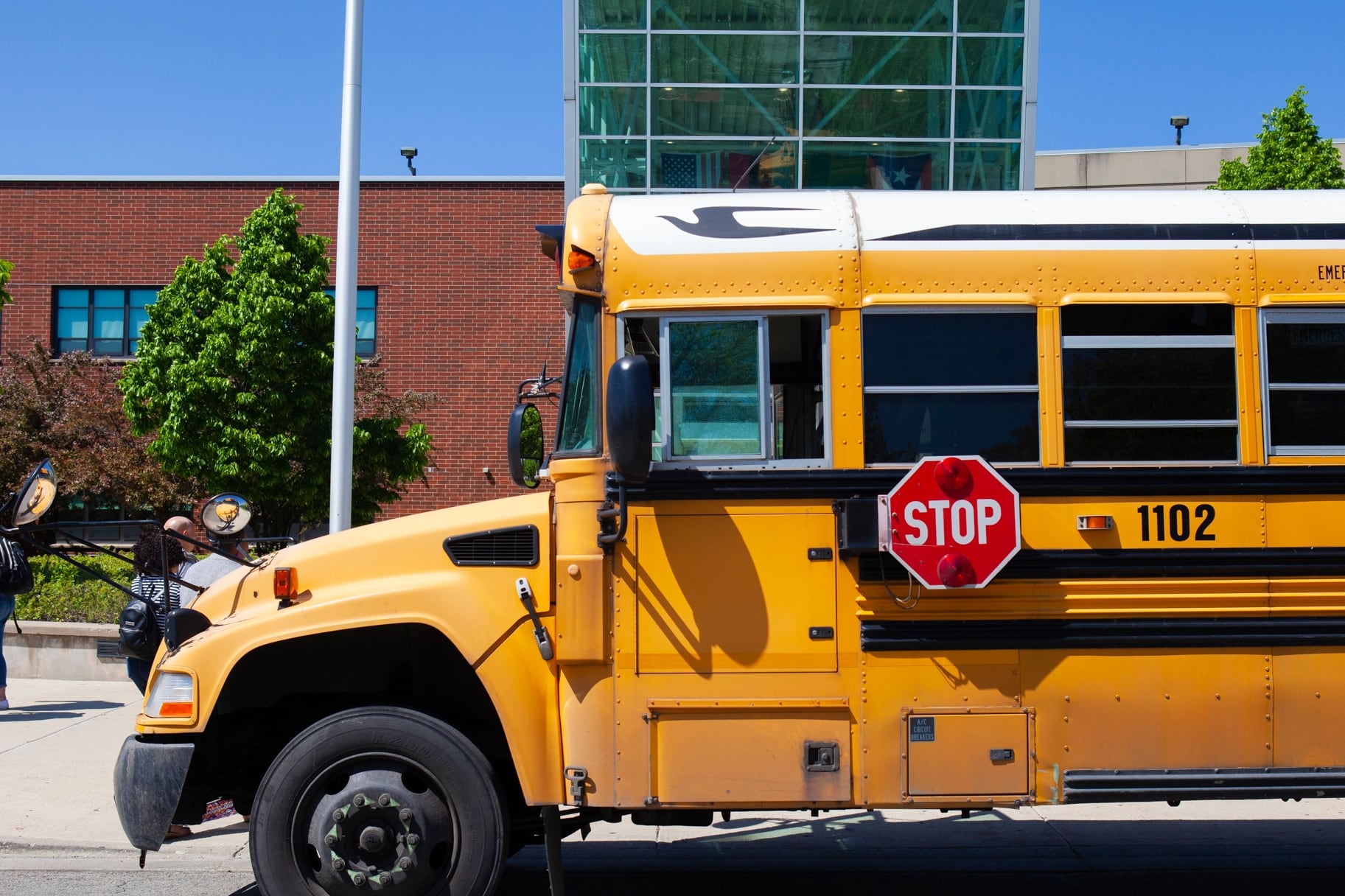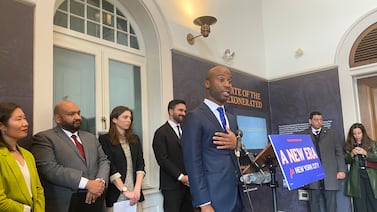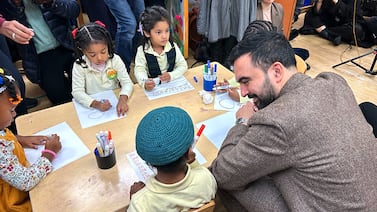Sign up for Chalkbeat Chicago’s free daily newsletter to keep up with the latest education news.
Chicago Public Schools officials blame the lack of transportation for students with disabilities this year on the nationwide bus driver shortage, a bus driver strike, and a vendor pulling routes, in response to a complaint filed to the Illinois State Board of Education.
The district has been under fire for the last few years for failing to provide bus routes to thousands of students with disabilities. The problem has been exacerbated by the COVID-19 pandemic and has led to the district cutting bus service for general education students and providing stipends to families who have children with disabilities to pay for transportation.
Last month, special education advocates filed a complaint with the state board alleging that CPS is in violation of a federal law that requires districts to provide transportation services for students with disabilities. It’s the most recent of several complaints related to busing filed in the past three years.
Chicago Public Schools responded to the most recent complaint on Sept. 27 outright denying that they have denied students with disabilities a Free and Appropriate Public Education. CPS said it has ongoing challenges with busing students due to a lack of bus drivers and recent issues with vendors that provide transportation for Chicago students.
SCR is the district’s largest paratransit vendor that provides bus services to students with disabilities, making up 45% of the district’s drivers and buses. But between Aug. 16 and Sept. 9, SCR employees went on strike because of what they said were low wages and unfair labor practices.
In the letter, Chicago officials said the district could not use SCR buses at the start of the school year due to the strike. After the strike, the number of bus routes offered to Chicago students decreased. Last year, SCR had 164 bus routes; now the vendor only operates about 65 routes for Chicago schools due to a loss of drivers, the school district said in its response to the state complaint.
Another vendor, Cook Dupage Transportation, which makes up about 13% of the district’s fleet , notified the district over the summer that it would no longer bus Chicago students this school year.
Despite the challenges, the district said, about 2,500 more students with disabilities — an increase of 32% — have been put on a bus route when compared with last year.
However, according to the district’s transportation data, 1,099 students with disabilities were still waiting to receive a bus route, as of Sept. 23. The district said 10,051 had been routed, and 1,122 students were receiving temporary compensation.
Terri Smith-Roback, one of the special education advocates who filed the complaint, said in an interview with Chalkbeat that the district’s bus driver shortage is ongoing and officials should have found creative ways to bus students before the start of school.
The state board “should say that this complaint is substantiated and compel the district to continue to provide data around what they’re doing to improve the situation,” said Smith-Roback. “I don’t want them to sanction the district with money or anything like that. I just want them to hold them accountable.”
The complaint from Smith-Roback and Miriam Bhimani, another special education advocate, outlined the lack of communication between Chicago families and the district, noting hour-long wait times for the district’s transportation hotline. The complaint also noted that Chicago required students with Individualized Education Programs to have a transportation request “on file,” a contradiction to what they told state officials in May.
Smith and Bhimani’s complaint alleged a widespread denial of a Free and Appropriate Public Education — guaranteed to students with disability under federal law — to Chicago students who have transportation services in their Individualized Education Programs.
The Illinois State Board of Education opened an investigation a few days after Smith and Bhimani submitted it. The state board is required to investigate and submit its findings within 60 days according to federal law.
Transportation was a concern raised by educators during the public comment portion of the Chicago Board of Education meeting last week.
Kirsten Roberts, a preschool teacher at Brentano Elementary school, said that one of her students who has a disability missed the first five weeks of the school year because the student did not have a bus route.
Roberts told the Chicago Board of Education that teachers, school administrators, case managers, and the student’s parent called and sent emails to the Chicago Public Schools’ Office of Transportation in an effort to get bus service for the student.
“This student with disabilities will never get back the first five weeks of preschool, the community-building, the learning of routines, the bonding with friends and teachers,” Roberts told the board.
After speaking at the board meeting, Roberts found out that the student later received a bus route.
Chicago Public Schools has struggled to bus students with disabilities since 2021 when students returned to classrooms after the pandemic closed school buildings.
Since then, the district has prioritized busing students with disabilities and those who are experiencing homelessness, as these students’ right to receive bus service is protected by federal law. But even students legally entitled to transportation have hit many roadblocks to receiving bus routes over the past several years.
Samantha Smylie is the state education reporter for Chalkbeat Chicago covering school districts across the state, legislation, special education and the state board of education. Contact Samantha at ssmylie@chalkbeat.org.






